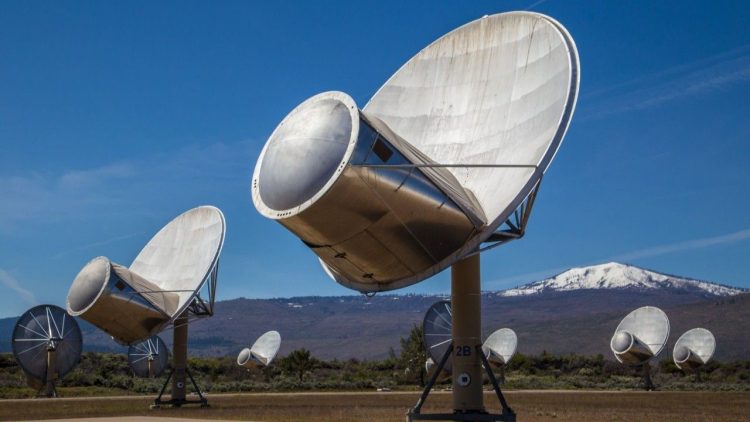The question of whether we are alone in the universe has captivated humanity for centuries. From ancient civilizations pondering the stars to modern-day scientists launching probes to distant worlds, the quest for extraterrestrial life continues to be one of the most profound mysteries of our existence. Yet, despite the vastness of the universe and the exponential growth of technology, we have not found any definitive evidence of life beyond Earth. But why?
The Fermi Paradox: The Great Silence
One of the most striking features of the search for extraterrestrial life is what we have not found: an overwhelming silence. The Fermi Paradox, coined after the famous physicist Enrico Fermi, encapsulates this puzzling situation. The universe is unimaginably vast, with billions of stars, many of which are older than the Sun. If life is common, then the odds are that intelligent civilizations should be widespread. So why, then, have we not heard from them?
The paradox raises several intriguing possibilities:
- We Are Alone: Perhaps intelligent life is incredibly rare, and Earth is one of the few, or the only, planet to host it.
- Civilizations Don’t Last: Advanced civilizations might emerge and destroy themselves before they can communicate with others.
- We Are Looking Wrong: Our methods of searching for extraterrestrial life, such as listening for radio signals or scanning distant planets for bio-signatures, may be fundamentally flawed.
- They Are Avoiding Us: Civilizations may deliberately choose not to contact us, for reasons unknown.
- They Don’t Exist Yet: Maybe intelligent life is still in the early stages of development elsewhere, and we simply haven’t crossed paths yet.
While none of these possibilities can be proven definitively, they each offer a lens through which to view the universe and our place in it.

The Vastness of the Universe: Searching for a Needle in a Haystack
One of the most pressing challenges in the search for alien life is the sheer size of the universe. The observable universe stretches across approximately 93 billion light-years, containing an estimated 100 billion galaxies, each with billions of stars and even more planets. The number of potential habitats for life seems almost limitless.
Yet, despite this, we’ve only begun to scratch the surface in terms of exploration. Even with the help of powerful telescopes like Hubble and the James Webb Space Telescope (JWST), our ability to detect signs of life is still limited. Most of our efforts focus on a small fraction of nearby stars or exoplanets—planets orbiting other stars—which are located in the so-called “habitable zone,” where conditions might allow liquid water to exist.
Moreover, detecting life on exoplanets is an extraordinarily difficult task. Telescopes can study distant worlds by analyzing the light they reflect or emit, searching for chemical signatures like oxygen, methane, or carbon dioxide—gases that on Earth are strongly associated with life. But even this method, though promising, is still in its infancy, and many scientists acknowledge that it could take decades before we find solid evidence.
The Drake Equation: A Mathematical Approach to Extraterrestrial Life
In the 1960s, astronomer Frank Drake developed the famous Drake Equation to estimate the number of active, communicative extraterrestrial civilizations in our galaxy. The equation factors in variables like the rate of star formation, the fraction of stars with planets, the number of planets that could support life, and the lifespan of technologically advanced civilizations.
While the equation provides a structured way to think about the problem, its conclusions depend heavily on the values of the variables, many of which remain uncertain. For instance, how common are planets that could support life? How long do technologically advanced civilizations survive before they self-destruct or retreat into isolation?
The equation underscores one key point: even if life is relatively common in the universe, the odds of making contact with another civilization are still slim, simply because the vast distances and timescales involved may prevent it from happening during our lifetimes—or even over the course of many millennia.
The Great Filter: A Dark Reflection of Our Future?
One of the more unsettling theories related to the Fermi Paradox is the concept of the “Great Filter.” This hypothesis suggests that at some point in the evolutionary timeline—either before the emergence of life or later, during the development of advanced civilizations—there is a major bottleneck that significantly reduces the chances of life advancing to the stage where it can communicate across interstellar distances.
The Great Filter could be any number of events or processes, such as:
- The emergence of life: Perhaps life itself is an extraordinarily rare event, and the conditions required for it are exceedingly unlikely.
- The jump to complex life: While microbes may be common, the leap from single-celled organisms to multicellular life, as occurred on Earth, might be an incredibly rare event.
- Technological self-destruction: A technologically advanced civilization may inevitably develop weapons of mass destruction or ecological technologies that wipe out its own species before it can establish long-lasting contact with other civilizations.

If the Great Filter exists, we may have already passed through it, meaning that our existence as a technologically advanced species could be extraordinarily rare. Alternatively, the filter could be ahead of us—suggesting that humanity may not survive long enough to make contact with alien civilizations.
The Search for Extraterrestrial Intelligence (SETI): A Glimmer of Hope
The Search for Extraterrestrial Intelligence (SETI) has been one of the primary scientific efforts aimed at detecting alien civilizations. For decades, radio telescopes have been pointed toward distant stars, listening for signals that might suggest the presence of an advanced civilization.
One of the most famous SETI projects was the search for narrowband radio signals—a type of transmission that is unlikely to occur naturally. The “Wow! signal,” detected in 1977, remains one of the most promising but unexplained signals ever captured. Although no one has yet been able to confirm it as extraterrestrial, it remains an intriguing possibility.
More recently, the focus of SETI has expanded to include other types of signals and even the search for techno-signatures—indicators of advanced technologies, such as unusual electromagnetic emissions, megastructures like Dyson spheres, or even artificial lights on exoplanets. Some scientists believe that we should be looking for more than just radio signals, considering the broad range of technologies that might exist elsewhere in the universe.
The Role of Artificial Intelligence in the Search for Aliens
Artificial intelligence (AI) is rapidly becoming a crucial tool in the search for extraterrestrial life. AI algorithms are now being used to process the vast amounts of data collected by telescopes, identifying potential signals that would be impossible for humans to spot. Machine learning systems are also being used to model how alien civilizations might behave, including analyzing how they might communicate or what types of environmental changes they might produce.
AI’s ability to sift through enormous datasets quickly and efficiently is an invaluable asset in the quest to answer the age-old question: Are we alone?
The Impact of Finding Alien Life
If we were to discover evidence of extraterrestrial life, the implications would be nothing short of profound. It would challenge our understanding of biology, philosophy, and even religion. The discovery of intelligent extraterrestrial life could also have significant cultural and geopolitical ramifications, as humanity would be forced to confront its place in the cosmic hierarchy.
Moreover, the discovery might spur a renewed interest in space exploration and the pursuit of interstellar communication. Some scientists speculate that contact with extraterrestrial civilizations could usher in an era of unprecedented scientific advancement.
On the other hand, the discovery of microbial life elsewhere—while monumental—might not have the same immediate existential impact. However, it would still be a breakthrough in understanding how life can arise and persist in diverse environments, and could lead to advancements in biotechnology, medicine, and space exploration.
Are We Truly Alone?
In the end, the question of whether we are truly alone in the universe remains unanswered. Despite the many challenges and mysteries involved, we continue to search, driven by the desire to understand our place in the cosmos. While the silence may be deafening, it only serves to make the pursuit of knowledge that much more compelling. Whether we are alone or not, the quest to find answers defines much of our curiosity, our creativity, and our ambition as a species.











































Discussion about this post